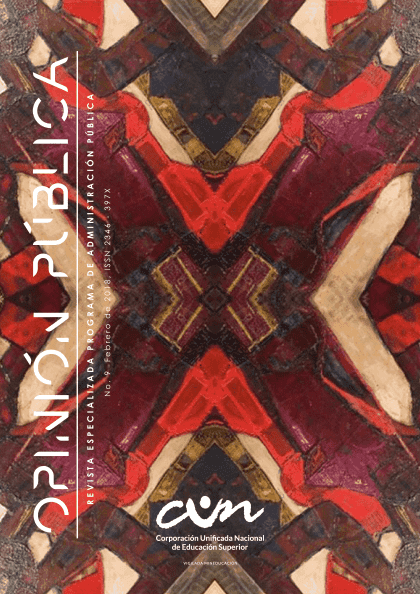¿De Occidente para el mundo? La teoría poscolonial y el conocimiento en relaciones internacionales
¿De Occidente para el mundo? La teoría poscolonial y el conocimiento en relaciones internacionales
Main Article Content
Abstract
The article presents a reflection on the place of postcolonial theory in international relations, as a lens that proposes a novel epistemological framework for the discipline. I analyze how postcolonial theory denounces that the logics of domination inherited from colonialism are reproduced through the social sciences and, especially, in international relations and their ways to produce scientific knowledge. Thus, after identifying certain relations of domination of an actor over another one –expressed in the duality of colonizer and colonized–, I highlight two of the main critiques provided by postcolonialism on knowledge in international relations: the Eurocentrism of knowledge, according to which Europe (or the West) assumed the power to point out as theory –frames to understand the world– what is produced there and as culture –units of analysis– what is done outside; and the situated character of knowledge, with which it is intended to move the locus of enunciation of knowledge towards the Global South.
Downloads
Article Details
References (SEE)
Bhabha, H. (1994). The location of culture. New York: Routledge.
Chakrabarty, D. (1999). La poscolonialidad y el artilugio de la historia: ¿Quién habla en nombre de los pasados “indios”? En S. Dube, Pasados poscoloniales: colección de ensayo sobre la nueva historia y etnografía de la India (pp. 623-658). México, D.F.: El Colegio de México.
De La Cadena, M. (2004). La producción de otros conocimientos y sus tensiones: ¿de la antropología
andinista a la interculturalidad? En C. I. Degregori, & P. Sandoval (comps.), Saberes periféricos, ensayos sobre la antropología en América Latina (pp. 109-152). Lima: Instituto de Estudios Peruanos.
De La Cadena, M. (2007). El movimiento indígena-popular en los Andes y la pluralización de la política. Una hipótesis de trabajo. Forum, 38(4), 36-38.
Grosfoguel, R. (2011). Decolonizing Post-Colonial Studies and Paradigms of Political-Economy: Transmodernity, Decolonial Thinking, and Global Coloniality. Transmodernity: Journal of Peripheral Cultural Production of the Luso-Hispanic World, 1.
Hadad, G. (2012). Reflexividad científica y locus de enunciación: meditaciones desde una experiencia de trabajo de campo. VII Jornadas de Sociología (pp. 1-21). La Plata: Universidad Nacional de La Plata.
Hoffmann, S. (1977). An American Social Science: International Relations. Daedalus, 106(3), 41-60.
Jiménez, J. (2013). Desplazamiento del locus de enunciación: desde la tierra de las visitas inoportunas. Siwo. Revista de Teología, 7(2), 97-119.
Lander, E. (2000). Ciencias sociales: saberes coloniales y eurocéntrico. En E. Lander (ed.) La colonialidad del saber: eurocentrismo y ciencias sociales. Perspectivas latinoamericanas (pp. 4-23). Buenos Aires, Argentina: Clacso.
Mignolo, W. (2003). Historias locales/diseños globales. Colonialidad, conocimientos subalternos y pensamiento fronterizo. Madrid, España: Akal.
Mignolo, W. (noviembre de 1995). La razón postcolonial: herencias coloniales y teorías postcoloniales. Revista Chilena de Literatura, 47, 91-114.
Pageau, C. (2010). Producción de saberes hegemónicos y periféricos: hacia una apertura del horizonte epistemológico. Section d’études hispaniques, (12), 181-197.
Quijano, A. (2001). Colonialidad del poder, globalización y democracia. Utopías: revista de debate político, (188), 97-123.
Quijano, A. (2013). Colonialidad del poder, eurocentrismo y América Latina. En E. Lander, La colonialidad del saber, eurocentrismo y ciencias sociales. Perspectivas latinoamericanas (pp. 201-246). Buenos Aires, Argentina: Clacso.
Said, E. (2008). Orientalismo. Barcelona: Debate.
Tickner, A. B., y Arreza, C. (enero-abril de 2002). Postmodernismo, postcolonialismo y feminismo: manual para (in)expertos. Colombia Internacional, (54), 14-98.
Waever, O. (1998). The Sociology of a Not So International Discipline: American and European
Developments in International Relations. International Organization, 4(52), 687-727.
Wallerstein, I. (1996). Open the social sciences: Report of the Gulbenkian Commission on the Restructuring of the Social Sciences. Stanford: Stanford University Press.
Wallerstein, I. (1999). The End of the World As We Know It: Social Science for the Twenty-First Century. Minneapolis: University of Minnesota Press.








